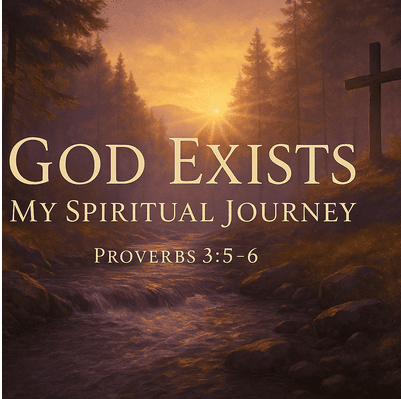Weight of Disconnection
The hymns still echoed faintly in the corridors of my mind, ghosts of Sunday mornings past. The verses I’d sung with such conviction in youth choir now felt like a foreign language, beautiful yet utterly disconnected from the reality of my days. Growing up Baptist, the lines had been clearly drawn, the path of righteousness laid out in Sunday school lessons and stern, but loving sermons. Sin wasn’t just a theological concept; it was a tangible barrier, a wedge driven between us and a holy God, and its consequences, I was beginning to learn, were far more profound than any fiery sermon could fully convey.
Outwardly, I might have projected an image of independence, of a life lived on my own terms. But inwardly, a subtle erosion was taking place. It wasn’t a sudden cataclysm, but a slow, persistent weakening of the spiritual foundations laid in my childhood. The constant dissonance between what I knew to be true and how I was living created a gnawing unease, a low-grade spiritual fever that never quite broke.
Emotionally, this disconnect manifested in a myriad of ways. There was a persistent undercurrent of guilt, a shadow that followed me even in moments of fleeting pleasure. It wasn’t the booming condemnation I might have expected from the pulpit, but a quiet, persistent whisper of “this isn’t right.” This guilt often morphed into shame, a sense of being fundamentally flawed, of having betrayed not only God, but also the values instilled in me by my family and church community.
The joy that the world promised often proved to be ephemeral, leaving behind a residue of emptiness. The fleeting highs were followed by a deeper low, a stark contrast to the enduring peace I remembered feeling when my life was more aligned with my faith. It was like trying to quench a deep thirst with saltwater – the immediate sensation might offer a brief respite, but ultimately, it only intensified the underlying need.
Loneliness became a frequent companion, even in the midst of relationships. There was a part of me I couldn’t truly share, a core understanding of the world and my place in it that felt increasingly isolated. The shared language of faith, once a source of deep connection with others, now felt like a chasm. I was living in a world where the foundational truths I had learned – the sovereignty of God, the importance of community, the hope found in Christ – were either ignored or actively contradicted in my daily choices. This created a sense of being adrift, unmoored from the spiritual anchors that had once held me firm.
Spiritually, the consequences were even more profound. Prayer, once a lifeline, became a strained and awkward exercise. How could I honestly approach God whose principles I was actively disregarding? The words felt hollow, the connection frayed. Bible reading, once a source of comfort and guidance, lay neglected, its pages silent witnesses to my neglect. The spiritual nourishment I had once received regularly was gone, leaving me feeling depleted and vulnerable.
The conviction of the Holy Spirit, that gentle nudge towards righteousness I had been taught about, became a dull ache, often ignored or rationalized away. My conscience, once a reliable guide honed by years of Christian teaching, became increasingly calloused, its warnings easier to dismiss. It was a dangerous cycle – the more I distanced myself from God’s ways, the less sensitive I became to His voice.
The sense of God’s presence, once a comforting reality, began to feel distant, almost imaginary. It wasn’t that God had abandoned me, as Baptist theology teaches His steadfast love, but rather that I had, through my choices, created a barrier to experiencing that closeness. The light of faith, once a guiding beacon, had dimmed, leaving me to navigate life’s complexities with my own limited understanding.
This spiritual drift had a subtle but significant impact on my worldview. The eternal perspective I had been taught, the understanding of life as part of a larger divine narrative, began to fade. My focus narrowed to the immediate, the temporal, often at the expense of the eternal. Decisions were made based on worldly desires and fleeting pleasures rather than on the principles of God’s Word.
Looking back, the weight of this disconnection was immense, even if I didn’t fully recognize its burden at the time. It was a slow suffocation of the soul, a gradual silencing of the spirit. The echoes of my Christian upbringing served not as a comfort, but as a constant reminder of the path I had strayed from, a poignant testament to the deeper, more fulfilling life I had once known and, deep down, still longed for. The “toils and snares” of my wandering weren’t just external circumstances; they were the internal consequences of a soul adrift, yearning for the anchor it had willingly let go.
Visit the Daily Walk page to read daily Bible study and prayer.
